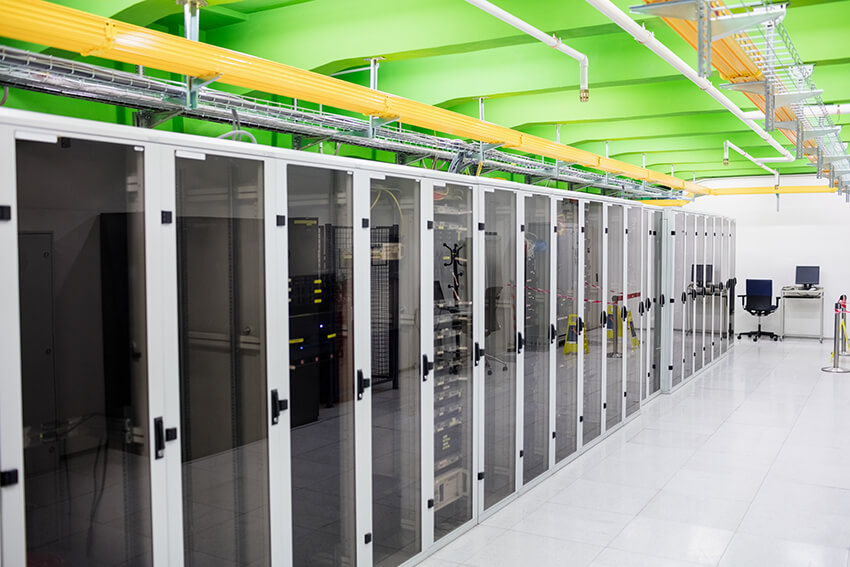Local vs. Cloud Hosting of Grievance Systems: The Way to Go

When it comes to managing grievance or complaint systems, the choice of hosting can significantly impact the efficiency and reliability of the platform. Local hosting and cloud hosting are the two primary options available.
This blog will delve into both, with a keen focus on highlighting why cloud hosting is often the superior choice.
Understanding Local Hosting
Local hosting involves setting up servers on-site, within the premises of the organization. This method gives organizations direct control over their data and hardware. However, it also comes with its own set of challenges.
Advantages of Local Hosting:
- Control and Customization: Direct access to servers allows for extensive customization and control over the system.
- Data Security: Organizations can implement their own security measures without relying on third-party providers.
- Compliance: Easier adherence to certain regulatory requirements that mandate data to be stored locally.
Disadvantages of Local Hosting:
- Network Instability: Local systems are susceptible to network outages, which can disrupt access to the grievance system.
- Power Fluctuations: Power outages or fluctuations can lead to system downtime, affecting the availability of the grievance platform.
- Maintenance: Requires dedicated IT staff for maintenance and troubleshooting, increasing operational costs.
- Scalability: Limited by physical hardware, making it challenging to scale up during peak times.
The Rise of Cloud Hosting
Cloud hosting, on the other hand, involves using third-party servers to host systems and data. This approach has gained immense popularity due to its numerous benefits.
Advantages of Cloud Hosting:
- Reliability: Cloud servers are less prone to network instability, ensuring consistent access to the grievance system.
- Resilience to Power Issues: Cloud providers typically have robust power backup systems, reducing the risk of downtime due to power fluctuations.
- Scalability: Easily scalable to handle varying loads, ensuring the system performs well even during high-traffic periods.
- Cost-Effectiveness: Reduces the need for extensive on-site hardware and IT personnel, lowering operational costs.
- Security: Cloud providers often offer advanced security measures, including encryption, multi-factor authentication, and regular security audits.
- Automatic Updates: Cloud systems are frequently updated by the service provider, ensuring the latest features and security patches are always in place.
- Disaster Recovery: Enhanced disaster recovery solutions with regular backups and redundancy to protect against data loss.
Potential Drawbacks of Cloud Hosting:
- Dependence on Internet: Requires a stable internet connection to access the system.
- Data Privacy Concerns: Storing data off-site can raise privacy and compliance concerns, although most cloud providers comply with stringent data protection regulations.
- Vendor Lock-In: Switching providers can be complex and costly due to proprietary technologies and data formats.
Why Cloud Hosting is the Better Choice for Grievance Systems
Given the nature of grievance systems, which require constant availability and robust security, cloud hosting offers several key advantages over local hosting:
- Minimized Downtime: With cloud hosting, the risk of system unavailability due to network issues or power outages is significantly reduced. Cloud providers utilize multiple data centers and redundant systems to ensure continuous uptime.
- Enhanced Security: Cloud hosting platforms employ cutting-edge security technologies, often surpassing the capabilities of local setups. Features like automatic updates, data encryption, and multi-layered security protocols help protect sensitive grievance data from breaches and cyber threats.
- Scalability and Flexibility: As organizations grow or face fluctuating demands, cloud hosting allows for seamless scaling. Whether it’s handling an unexpected surge in complaints or expanding the system to accommodate more users, cloud solutions can quickly adapt to changing needs.
- Reduced Operational Costs: By leveraging cloud infrastructure, organizations can cut down on the costs associated with maintaining physical servers, hiring dedicated IT staff, and managing hardware upgrades.
- Focus on Core Activities: With the technical aspects managed by the cloud provider, organizations can focus more on addressing grievances and improving customer satisfaction rather than worrying about system maintenance.
- Disaster Recovery and Backup: Cloud hosting services often include comprehensive disaster recovery plans, ensuring data integrity and availability even in the event of a catastrophic failure.
FAQs
Q: What is the main difference between local and cloud hosting?
A: Local hosting involves on-site servers managed by the organization, while cloud hosting uses third-party servers accessed via the internet.
Q: Why is cloud hosting considered more reliable?
A: Cloud hosting is more reliable due to its resilience against network instability, power fluctuations, and the advanced infrastructure used by cloud providers.
Q: Can cloud hosting handle sensitive data securely?
A: Yes, cloud providers offer robust security measures such as data encryption, multi-factor authentication, and regular security updates to protect sensitive information.
Q: Is cloud hosting more cost-effective than local hosting?
A: Generally, yes. Cloud hosting reduces the need for physical hardware, IT personnel, and ongoing maintenance, which lowers operational costs.
Wrapping Up
When choosing between local and cloud hosting for grievance systems, it’s clear that cloud hosting offers significant advantages in terms of reliability, security, scalability, and cost-effectiveness. By opting for cloud hosting, organizations can ensure their grievance systems remain accessible, secure, and efficient, ultimately leading to better handling of complaints and higher satisfaction among stakeholders.
